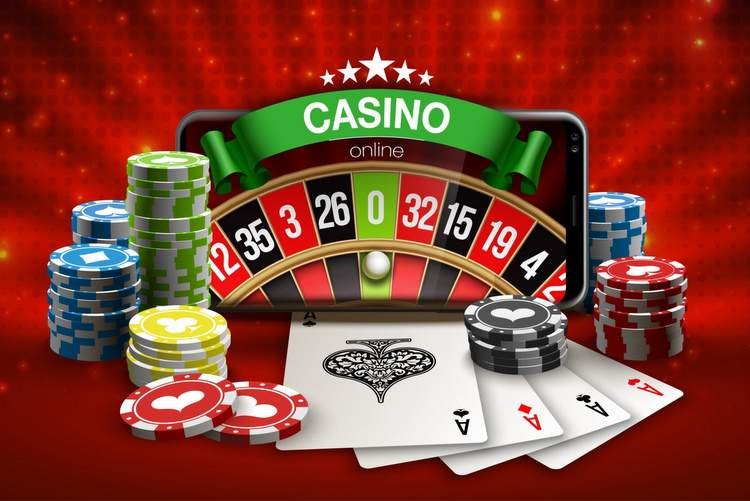The online gambling industry has grown at an extraordinary rate over the past decade, offering players more accessibility, convenience, and variety than ever before. While the majority of platforms operate legitimately, there are unfortunately some that engage in unethical or fraudulent practices. Identifying these bad actors is essential for protecting both your bankroll and your personal data. Understanding how to spot a rigged online casino is not just about avoiding losses, but also about ensuring fair gameplay and transparency across every wager you make.
Online gambling regulations have improved significantly, yet shady operators continue to exploit loopholes. By recognizing warning signs and learning how reputable casinos function, you can easily distinguish legitimate platforms from potentially rigged ones. Whether you’re a casual slot player or a high-stakes poker enthusiast, being informed gives you the power to gamble safely and intelligently.
What Does a Rigged Online Casino Mean?
A rigged online casino refers to any gambling platform that manipulates game outcomes, payout systems, or player interactions in a way that unfairly benefits the operator. In regulated gaming, results are determined by certified Random Number Generators (RNGs), ensuring every spin or hand is statistically independent. In contrast, a rigged casino interferes with this process to reduce the player’s chances of winning or to falsify game results altogether.
These manipulations can occur through unlicensed software, tampered algorithms, or altered payout ratios that violate fair gaming standards. Understanding how such practices work is the first step in recognizing and avoiding them.
Key Warning Signs of a Rigged Online Casino
Spotting a rigged casino often involves noticing subtle inconsistencies and red flags. Below are detailed indicators that a platform might not be trustworthy.
1. Lack of Proper Licensing and Regulation
The first and most critical step in evaluating any casino is to verify its license. Legitimate operators display their regulatory credentials prominently, issued by recognized authorities such as:
- Malta Gaming Authority (MGA)
- UK Gambling Commission (UKGC)
- New Jersey Division of Gaming Enforcement (DGE)
- Curacao eGaming (though this varies in reliability depending on operator conduct)
A casino without visible licensing, or one with unverifiable credentials, should immediately raise suspicion. Rigged casinos often use fake license numbers or link to expired certificates that appear legitimate at first glance. Always verify license numbers directly with the issuing authority’s database.
2. Unrealistic Bonus Offers
Fraudulent casinos often use exaggerated bonuses to lure unsuspecting players. Promises like “500% deposit match” or “instant no-wagering withdrawals” are often too good to be true. While bonuses are common marketing tools, there’s always a financial balance between operator profitability and player incentives.
If the bonus terms seem unusually generous or have vague conditions, proceed cautiously. Hidden clauses such as excessive wagering requirements or restricted withdrawals are classic tactics used to trap players into endless play without ever cashing out real profits.
3. No RNG Certification or Third-Party Audits
One of the defining features of a fair casino is its use of an RNG certified by independent testing agencies. Legitimate third-party auditors include:
- eCOGRA (eCommerce Online Gaming Regulation and Assurance)
- iTech Labs
- GLI (Gaming Laboratories International)
If a casino fails to disclose its RNG certification or doesn’t display a valid audit seal, it’s a potential red flag. Fake casinos frequently manipulate game results to ensure the house always wins, regardless of player skill or luck.
4. Suspiciously Consistent Losses or Patterns
In a properly functioning casino, the results are purely random. However, in rigged systems, players may observe highly improbable losing streaks or predictable patterns that defy statistical logic. For example:
- Repeatedly losing by the same margin across sessions
- Bonus rounds or jackpot features never triggering despite prolonged play
- Sudden account glitches right after significant wins
While variance is expected in gambling, consistent irregularities point to potential algorithmic manipulation.
5. Delayed or Denied Withdrawals
Withdrawal delays are among the clearest indicators of a fraudulent casino. A legitimate operator processes withdrawals promptly after basic verification checks. However, dishonest platforms often stall or reject withdrawal requests under the guise of “security reviews” or “verification issues.”
Some will even deactivate accounts immediately after a large win, claiming “terms violations.” If withdrawal timelines stretch beyond industry norms (24–72 hours for verified accounts), it’s time to reconsider playing on that site.
6. Poor or Nonexistent Customer Support
Another hallmark of untrustworthy casinos is unresponsive or evasive customer service. In legitimate operations, support teams are accessible through multiple channels—live chat, email, or phone—and provide clear answers.
Conversely, rigged casinos often feature:
- Nonfunctional chatbots or inactive emails
- Scripted responses that avoid addressing specific issues
- Long response times or no follow-up at all
If you can’t reach a human representative or receive conflicting information, that’s a serious warning sign.
7. Unsecured Payment Methods
Payment transparency is another critical factor. Trusted casinos use secure payment gateways with encryption and clear transaction histories. Look for SSL encryption (a small padlock symbol near the website URL).
Fraudulent sites may:
- Accept only cryptocurrencies or obscure payment processors
- Request direct card information without encryption
- Have vague refund policies or hidden transaction fees
Always verify the safety of payment channels before depositing.
How to Verify if a Casino is Legitimate
Spotting problems is one thing, but confirming legitimacy requires active verification. Here’s a step-by-step method to ensure you’re dealing with a trustworthy platform.
Check for a Valid License
Visit the regulator’s official site and search the license number listed on the casino’s page. Valid casinos appear in the public register with details such as company name, registration ID, and active license dates.
Review the Operator’s Reputation
Use reputable gaming forums or watchdog platforms to gauge feedback. Consistent complaints about withdrawals or fairness often indicate systemic issues. Conversely, legitimate operators maintain transparent communication and resolve disputes publicly.
Examine Software Providers
High-quality casinos collaborate with well-known game developers whose titles undergo strict fairness testing. Unfamiliar or anonymous game providers could mean the software is self-hosted and potentially manipulated.
Test the RNG
Play several low-stakes rounds across different games and monitor results over time. True randomness should show natural fluctuation between wins and losses. Repeatedly losing in predictable intervals is an indication of algorithmic interference.
Read the Terms and Conditions Carefully
Fraudulent sites often hide predatory rules in the fine print, such as:
- Forfeiture clauses for inactivity
- Unreasonable verification demands before withdrawals
- Arbitrary account suspensions
A legitimate casino provides concise, legally sound, and easy-to-understand policies.
Legal Framework and Player Protection
Most jurisdictions mandate strict standards for online casinos, including auditing, financial transparency, and player protection. In the United States, for instance, individual states regulate iGaming independently under their gaming commissions.
Regulated casinos are subject to:
- Routine third-party audits
- Anti-money-laundering (AML) checks
- Responsible gaming programs
- Transparent dispute resolution mechanisms
If a casino operates without any oversight or licensing disclosure, it’s likely functioning illegally or in a gray area where player protection is nonexistent.
The Technology Behind Fair Gaming
Understanding the underlying technology can also help you identify potential manipulation.
Random Number Generators (RNGs)
RNGs are the backbone of online gaming fairness. These algorithms produce random outcomes that simulate real-world unpredictability. Certified RNGs use cryptographic functions to prevent interference or prediction. If a casino doesn’t specify its RNG provider, or uses proprietary “home-built” systems without external verification, caution is advised.
Return to Player (RTP) Transparency
Every legitimate game publishes its RTP percentage, representing the theoretical payout rate over time. A standard slot RTP ranges between 94% and 98%. Casinos that hide RTP data or claim unrealistic figures (like 99.9% across all games) are misrepresenting odds.
SSL Encryption and Data Security
Secure Socket Layer encryption safeguards financial and personal data. Always confirm the presence of HTTPS in the casino’s URL and ensure their privacy policy aligns with international data protection laws such as GDPR or CCPA.
Responsible Gambling and Player Safeguards
Beyond fairness, ethical casinos promote responsible gaming. They offer players tools to manage their gambling habits, including:
- Deposit and time limits
- Self-exclusion options
- Reality checks and spending reports
Fraudulent casinos rarely implement such tools because they rely on player overexpenditure. A responsible operator views player protection as integral to long-term sustainability.
Practical Tips to Stay Safe Online
To minimize the risk of encountering rigged casinos, follow these actionable strategies:
- Only play on sites licensed by reputable authorities.
- Avoid downloading unknown software or casino clients.
- Use secure payment methods such as verified e-wallets or credit cards.
- Keep screenshots of important communications and transactions.
- Research before signing up; trustworthy platforms never hide ownership or operational details.
FAQs About Rigged Online Casinos
Q: Can a licensed casino still be rigged?
In rare cases, yes. While licensing reduces the risk, corruption or negligence can still occur. However, regulated casinos undergo routine audits, making manipulation difficult to conceal.
Q: What should I do if I suspect a casino is rigged?
Immediately stop playing and withdraw your remaining balance. Document your experience and report the issue to the licensing authority or a gambling dispute service.
Q: Are live dealer games ever rigged?
Live dealer games are typically harder to manipulate because they involve human dealers and real-time streaming. However, unlicensed operators may still fake live streams or use pre-recorded footage, so verification is essential.
Q: How do I confirm an RNG is fair?
Check for certification seals from third-party auditors like eCOGRA or iTech Labs. Clicking on these seals should lead to verification pages, not static images.
Q: Is it safe to play using cryptocurrency?
Yes, but only on licensed crypto casinos that implement blockchain verification and transparent payout ledgers. Unregulated crypto platforms can easily falsify results without oversight.
Q: Why do some casinos delay withdrawals even when legitimate?
Licensed casinos perform identity verification to comply with anti-fraud laws. However, excessive or repetitive delays are not normal and may indicate internal issues or bad intent.





